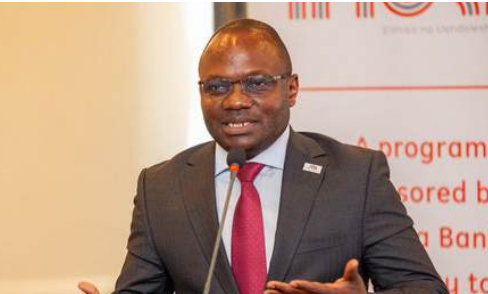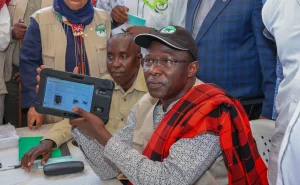Car dealer and entrepreneur Khalif Kairo has urged Kenyans to remain cautious when engaging in forex trading.
Speaking during an interview with SPM Buzz, Kairo stressed that forex is a legitimate global market where people can earn money. However, he warned that scammers often misuse its name to con unsuspecting investors.
“Forex is real and people make money through it, but there are scammers who scam people and say it’s forex,” Kairo said.
Lavish Displays of Wealth
In Kenya, many self-proclaimed forex traders have become popular for showcasing luxurious lifestyles on social media.
From high-end cars and designer clothes to expensive vacations, these traders often present themselves as proof that forex can deliver overnight success.
Some, like Sammy Boy, have shared fleets of German machines and high-rise apartments, drawing admiration and skepticism in equal measure.
Others, such as Kenyan Prince, post about big wins and flashy spending to project an image of endless profits.
While such displays attract thousands of followers, they also raise questions. Kairo’s warning suggests that many of these images may be exaggerated or funded by schemes rather than genuine forex earnings.
A Fertile Ground for Scams
Forex, short for foreign exchange, is the world’s largest financial market, with daily trades worth trillions of dollars. The market is legitimate, but it is also complex and carries significant risks.
In Kenya, the industry’s rapid growth has created an opening for scammers. Some claim to be forex “mentors,” charging hefty fees for training programs.
Others set up fake investment groups, promising guaranteed returns. Once victims deposit their money, the schemes often collapse.
Authorities have previously cautioned against unlicensed brokers and pyramid-style investment plans disguised as forex. But regulation remains a challenge, leaving many young investors vulnerable.

Lessons From the Past
Several forex personalities in Kenya have faced public scrutiny after their flashy lifestyles drew suspicion. Online debates erupted when critics accused certain traders of masking fraud with luxury.
One of the most debated moments came when comedian Flaqo parodied forex traders in a skit about “Sim2” users, portraying them as scammers. His content sparked backlash from traders such as Sammy Boy, who said the skits undermined legitimate players.
The controversy highlighted how blurred the line between real trading and scam activity has become in Kenya.
Why His Warning Matters
Forex scams continue to rise in Kenya, targeting especially the youth who aspire to quick financial success. Kairo’s warning comes at a time when social media influencers market forex as an instant route to wealth, masking the real risks involved.
By reminding Kenyans that forex is legitimate but heavily exploited by fraudsters, Kairo has added his voice to a growing call for awareness and caution in one of the most misunderstood markets.
by judy mutinda












